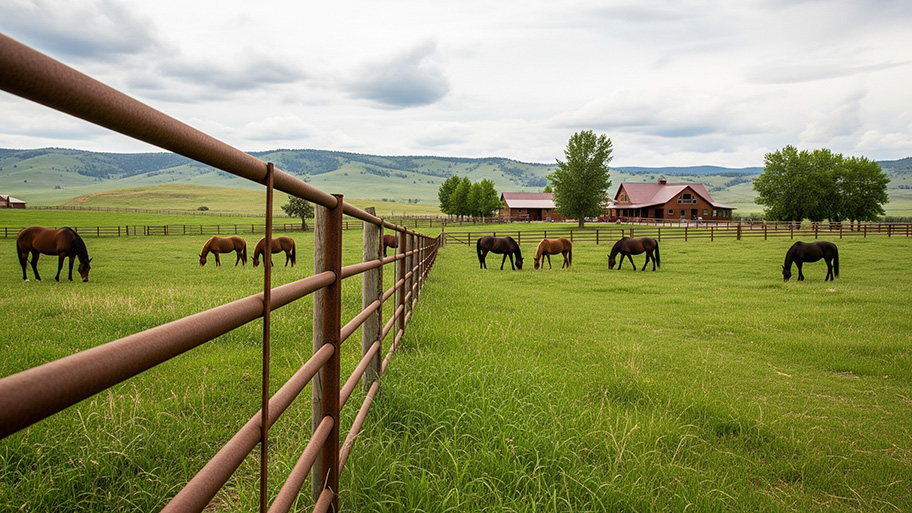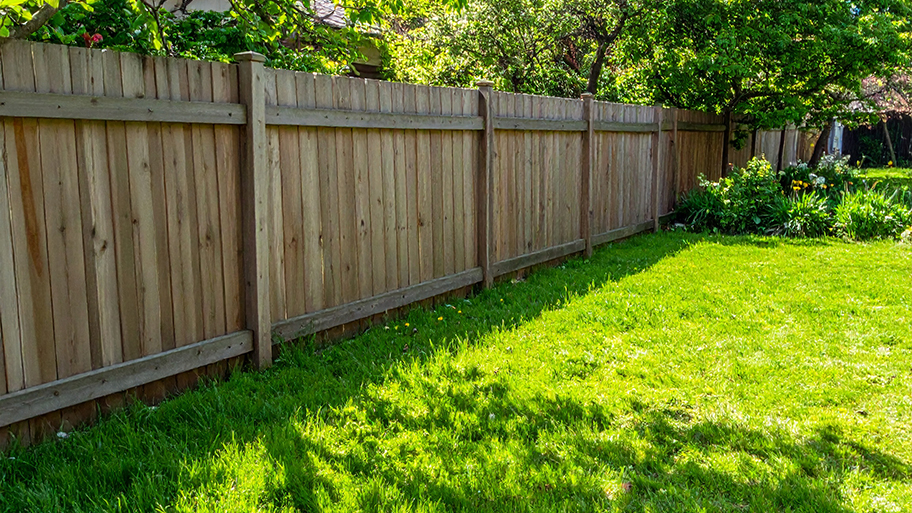
Find out the invisible fence installation cost. Learn about average prices, key cost factors, and tips to save on your pet’s safety solution.
Keep your fencing intact and your pup happy with these tried-and-true tricks


Dogs dig holes under fences for a lot of reasons, whether it’s not getting enough physical activity or feeling anxious when their favorite person—you!—isn’t around. Still, it’s essential to nip an issue like this in the bud before matters worsen and Spike gets stuck or escapes.
The following guide lays out all the ways to keep dogs from digging under fences and the pros and cons of each method. Keep in mind that you’ll most likely need to use one or more of these tricks at the same time to get the desired results.
Dogs don’t just dig holes because it’s coded into their DNA—several internal and external factors cause this behavior. For starters, many dogs turn to digging if they’re bored and not getting much mental stimulation or physical exercise. Others may feel the urge to dig when experiencing separation anxiety from their owners, while just as many will do it simply to get closer to a pesky squirrel beyond the barrier.
The best way for the following tricks to work is to figure out what’s making your pup tick in the first place. Supervise their time outside and watch for anything that could get them riled up. If they don’t dig in front of you, but you return home to find holes regularly, you may need to install cameras to find out what they’re getting up to in your absence. Keep reading for what to do after determining the root of the issue.
Many dogs dig out of boredom. If your pooch is trying to tunnel under your fence, providing plenty of exercise and stimulating playtime should help.

The adage “out of sight, out of mind,” also applies to dogs and holes. If there are no existing holes, they’re less likely to start digging around your fence. Use fresh soil or reuse uprooted dirt to fill and level these spots before taking more drastic measures.
If the last step wasn’t enough to deter your dog, burying the base of the fence by a few inches is the next best option. There are a few ways to do this, and all options vary in cost and workload. Start with the most affordable fix and work your way up from there.
Gravel is popular because it’s more challenging to dig up than soil, easy to install, and cost-effective. You’ll pay more but get better security by attaching chicken or hog wire fencing instead. You can also fill the base with cement if nothing else works, but save this method as a last resort as it’s costly and time-consuming (and might not blend well with the rest of your landscaping).
Some dogs just like to dig. In these cases, you may find more success by giving them a place to practice their passion instead of trying to eliminate the habit. Try filling a sandbox with soil and guide them to it whenever you notice the claws start to fly at the base of your fence. And don’t forget to reward good behavior when they go to the zone all on their own!
Boredom is one of the main reasons dogs turn to digging in inconvenient places. If you notice your furry friend digging more than usual, that could be a sign they’re missing out on regular playtime. Schedule more doggy activities into your planning and see what kind of effect it has.
In addition to plenty of mental stimulation, dogs also need a lot of physical exercise. Letting them run free in the yard might not be enough to get all their wiggles out, so be sure to plan walks and trips to the dog park or play dates where they can chase and be chased by others. That way, they have plenty of opportunities beyond digging to increase their heart rate.

If your dog can easily see through your fence, it’s more likely that they’ll be riled up by what’s on the other side. In many cases, a squirrel running by or a bird hopping around will be all it takes for them to get digging. There are so many privacy fence ideas that will obstruct their view, limit over-excitement, and keep the base of your fencing intact.
Installing a privacy fence isn’t always the speediest project. If you need a short-term solution, consider installing a DIY temporary fence to keep your furry friends safe and contained.
Your pantry is filled with things that will naturally deter your dog from digging up your fence without causing harm. Before using a store-bought deterrent, try out a natural solution first. Dogs are easily repelled by things like citrus peels and oils, apple cider vinegar, and even coffee grounds—so you can dump the leftovers from your morning brew in the soil by your fence and rest easy knowing that your dogs will avoid it.
If your dog’s digging is paired with constant whining, howling, or barking, this could be a sign that they’re searching for a mate. Neutering or spaying your dog will minimize their urge to escape and explore and benefit their health. According to the Humane Society, it can increase their life expectancy by up to 26 percent.
Some dogs, especially younger puppies, need constant supervision. If you’ve tried all the tricks and the digging persists, keeping your eye on them when they’re in the yard may be your only option. Many of the above tips take time to get results, so use your moments to reinforce or encourage new habits—like digging in the sandbox instead of the fence base. They’ll adapt over time, and before you know it, all those unwanted holes will be a thing of the past.
From average costs to expert advice, get all the answers you need to get your job done.

Find out the invisible fence installation cost. Learn about average prices, key cost factors, and tips to save on your pet’s safety solution.

Pipe fencing is an extremely strong, durable option for containing horses and other livestock. This guide breaks down the factors that affect pipe fence cost.

There are many dog fence options, from tall privacy fencing to wireless underground electric fences. Here's how much it costs to install a dog fence.

It’s essential to give your dog a safe place to run and play. Learn which are the best fences for dogs so your pet can freely enjoy the outdoors.

Keep your pet safe and secure by learning how to locate and fix breaks in an invisible dog fence with these step-by-step tips.

Frustrated by the neighborhood dogs continually sniffing around your garden? Check out these ideas for humane and handy dog repellents for lawns.